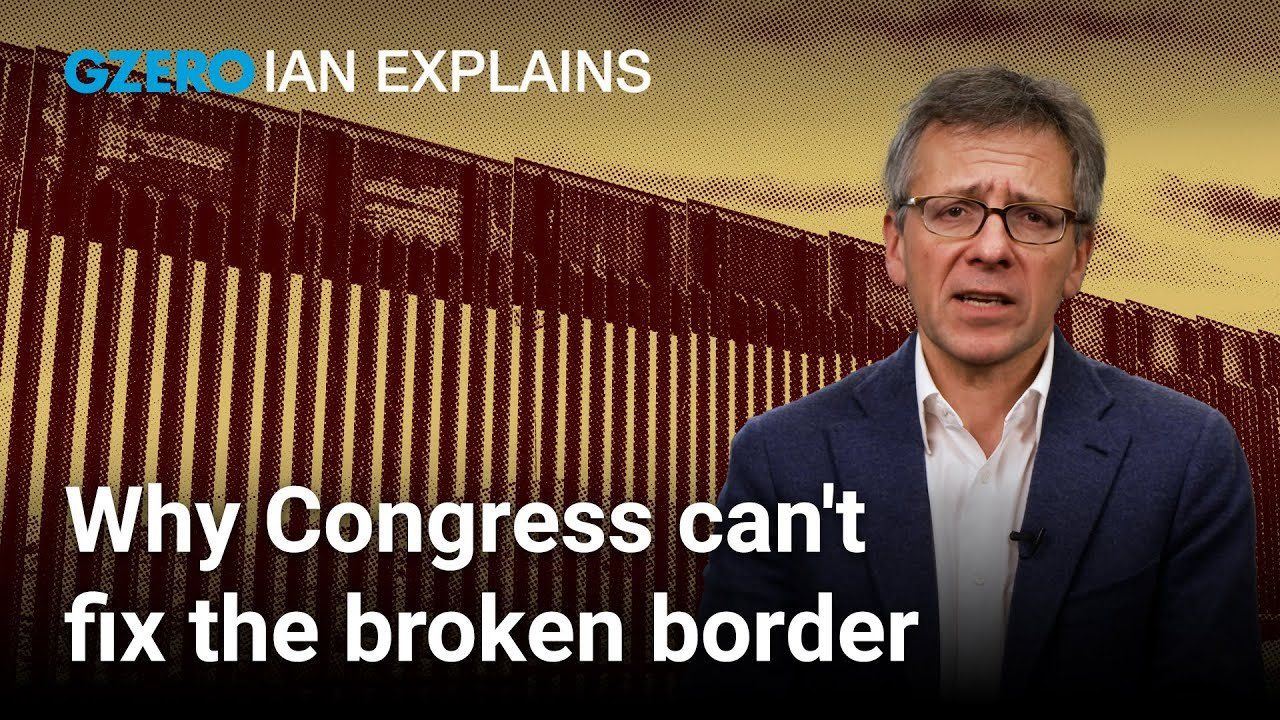Ian Explains
Ian Explains: Why Congress can't fix the US border problem

Ian Explains: Why Congress can't fix the US border problem | Ian Bremmer | GZERO World

In this edition of Ian Explains, we look at the border deal that wasn’t and try to answer a very complicated question: Why is our immigration system so broken?
The US is a country of multiple realities. The economy is booming. Everything is expensive. Donald Trump is a threat to democracy. Donald Trump is the leader of the GOP. Taylor Swift is a pop icon. Taylor Swift is a Deep State asset. And then there’s immigration. In one reality, Democrats and Republicans have come together on legislation to secure the Southern border at a time when bipartisanship in Washington is all but unheard of. But in another reality, none of that matters, because the bill will never become law, Ian Bremmer explains on GZERO World.
So how did we get to this point, and why won’t anything come of it? The answer to the first question starts with Ukraine. Late last summer, US funding for Ukraine’s defense against Russia’s invasion (talk about a border crisis) was drying up. And for the first time since the war began, it was looking like Republicans were not going to approve more money until THEIR key national security issue was addressed.
Then President Biden did something truly unexpected. He said: “Ok.”
People in support of former South Korean President Yoon Suk Yeol rally near Seoul Central District Court in Seoul on Feb. 19, 2026. The court sentenced him to life imprisonment the same day for leading an insurrection with his short-lived declaration of martial law in December 2024.
65: The age of former South Korean President Yoon Suk Yeol, who was sentenced to life in prison on Thursday after being found guilty of plotting an insurrection when he declared martial law in 2024.
In an era when geopolitics can feel overwhelming and remote, sometimes the best messengers are made of felt and foam.
The Hungarian election is off to the races, and nationalist Prime Minister Viktor Orbán is facing his most serious challenger in 16 years.
Does skepticism rule the day in politics? Public opinion data collected as part of the Munich Security Conference’s annual report found that large shares of respondents in G7 and several BRICS countries believed their governments’ policies would leave future generations worse off.